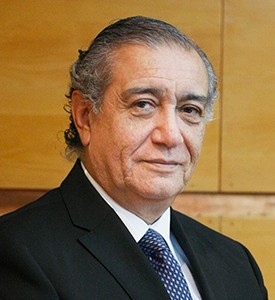
Cochilco provides the Chilean copper mining industry with vital strategic information with which to guide strategy.
Share
What have been the biggest developments in Chilean mining since 2013?
Since 2013, the portfolio of investment projects in Chile has declined significantly, from approximately $110 billion to $50 billion. The most important cause is the sharp decline in the price of copper. In fact, the demand for copper has been relatively steady. Before the downturn in the price of copper, the mining boom in Chile led to the development of and investment in many projects. Eventually, costs increased because these companies were hiring workers and consultants, and buying equipment and machinery. We are now seeing the opposite and operational costs are lower. I believe the price of copper will hit $2.83 per pound by the end of this year and will hover around $3.00 per pound in the long-term.
How has the government helped boost or incentivize the mining sector during this time of low commodity prices?
The government of Chile provides information to the mining sector, including reliable statistics that we have access to thanks to our International Copper Study Group. They give us access to data pertaining to the evolution of the market, such as supply and demand. Besides that, we represent the country in the world copper market, we own the presidency of APEC’s mining group, and we also supervise copper exports. We have plenty of activities that always support mining companies, not only during difficult times. Cochilco is a very reliable institution that always thinks about the development of the sector.
How important is the use of data to Cochilco’s operations?
We receive statistical information on production, costs, and supply and demand. This information is handled with absolute confidentiality and is delivered in generic terms, and it has evolved as a management tool for companies, universities and professional institutes. Our evaluations and investments of Codelco and Enami give us in-depth knowledge about the industry and supply needs. These figures give us confidence in the fact that Cochilco knows the mining sector from both a technical and economic perspective.
What are the main advantages of investing in Chile?
Chile is the biggest copper producer in the world. The country has developed unique technology, we have great professionals, and our institutions have 200 years of tradition and stability. Furthermore, Chile has a great deal of respect for international contracts, and investors can have legal certainty here.
What have been the biggest developments in Chilean mining since 2013?
Since 2013, the portfolio of investment projects in Chile has declined significantly, from approximately $110 billion to $50 billion. The most important cause is the sharp decline in the price of copper. In fact, the demand for copper has been relatively steady. Before the downturn in the price of copper, the mining boom in Chile led to the development of and investment in many projects. Eventually, costs increased because these companies were hiring workers and consultants, and buying equipment and machinery. We are now seeing the opposite and operational costs are lower. I believe the price of copper will hit $2.83 per pound by the end of this year and will hover around $3.00 per pound in the long-term.
How has the government helped boost or incentivize the mining sector during this time of low commodity prices?
The government of Chile provides information to the mining sector, including reliable statistics that we have access to thanks to our International Copper Study Group. They give us access to data pertaining to the evolution of the market, such as supply and demand. Besides that, we represent the country in the world copper market, we own the presidency of APEC’s mining group, and we also supervise copper exports. We have plenty of activities that always support mining companies, not only during difficult times. Cochilco is a very reliable institution that always thinks about the development of the sector.
How important is the use of data to Cochilco’s operations?
We receive statistical information on production, costs, and supply and demand. This information is handled with absolute confidentiality and is delivered in generic terms, and it has evolved as a management tool for companies, universities and professional institutes. Our evaluations and investments of Codelco and Enami give us in-depth knowledge about the industry and supply needs. These figures give us confidence in the fact that Cochilco knows the mining sector from both a technical and economic perspective.
What are the main advantages of investing in Chile?
Chile is the biggest copper producer in the world. The country has developed unique technology, we have great professionals, and our institutions have 200 years of tradition and stability. Furthermore, Chile has a great deal of respect for international contracts, and investors can have legal certainty here.